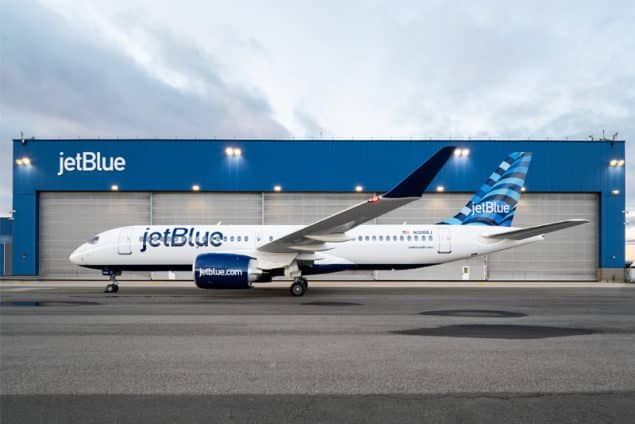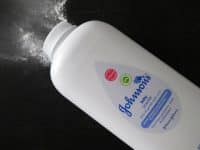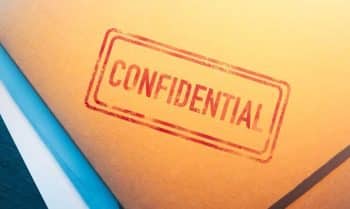Home » Business News » JetBlue, Xerox and Johnson & Johnson – 3 CEOs who saved their businesses by making unpopular decisions
JetBlue, Xerox and Johnson & Johnson – 3 CEOs who saved their businesses by making unpopular decisions
https://www.whatjobs.com/news/business-news/jetblue-xerox-and-johnson-johnson-3-ceos-who-saved-their-businesses-by-making-unpopular-decisions

By Hugh Fort in Business News, posted July 28, 2022

Being a CEO isn't exactly the most straightforward role.
Every day you are forced to make decisions that can make or break a business; if it does break, you are the only person responsible. Your choices also influence others; if they're unhappy with them, it makes your job much harder.
Situations develop where leaders have to take action, even if they're not 100 percent sure of the result, and sometimes doing nothing can lead to much more significant issues.
READ MORE: I WANT THAT JOB! HOW CEOS AT WARNER BROS, COCA-COLA, AND HCA HEALTHCARE ALL PROFITED DESPITE POOR RESULTS
These 3 CEOs showed off their leadership skills and saved their businesses by making unpopular decisions:
David Neeleman - JetBlue
It's a fact that customers are what makes a business, and without them, well, there is no business.
Sometimes even the best businesses make mistakes: in February 2007, airline JetBlue sank the customer relations ball.
But luckily enough, the genuine and touching apology of former CEO David Neeleman managed to save them.
A week of terrible weather and freezing temperatures in February 2007 on the east coast resulted in many flight cancellations, leading to JetBlue having to stop its operations altogether.
130,000 JetBlue passengers were let down, leaving passengers stranded in planes for up to 11 hours, which led to complete carnage.
What did David Neeleman do wrong?
- He made judgments solely based on profit and had no consideration for customers.
- Most airlines canceled flights, but JetBlue chose to wait it out to save money.
- The business had grown too quickly and didn't build plans to deal with situations like that.
- JetBlue lacked communication, leaving the crew unaware of anything.
- To save money and keep costs low, employees were stretched thin.
- Most of the staff weren't given proper training and therefore had no clue how to deal with weather emergencies.
Neeleman took responsibility for the catastrophe and apologized everywhere he could.
He prepared a customer bill of rights holding JetBlue financially liable to passengers.
He was still sacked, but the company was mainly forgiven due to his actions.
JetBlue bounced back and ranked highly with customers. They redeemed themselves by proving to people that they were willing to put in the graft to gain the trust of customers and staff again.
In 2012, JetBlue had the lowest rates of canceled flights, and more recently, in 2015 were ranked first in customer satisfaction.
James E. Burke - Johnson & Johnson
In 1982, 7 deaths were caused by deadly Tylenol capsules, including a 12-year-old girl.
In September that year, someone had messed around with the packaging and spiked the medicine with deadly cyanide.
Then just one month later in California, Tylenol was spiked with strychnine.
Four years on, yet another victim died of cyanide poisoning from Tylenol.
These spine-tingling stories made people question the safety of Johnson & Johnson.
However, ex-CEO James E. Burke's response to the scandal was so strong he received a Presidential Medal of Freedom from President Bill Clinton in 2000.
Rather than putting the blame on something/someone else and not responding to any questions asked, Burke took major action:
- He recalled every single Tylenol that was sold in October 1982.
- Gave out coupons to compensate customers.
- After the incidents occurred, all advertisements for Tylenol were put to a halt.
- He ensured offices, hospitals, doctors, and trade groups were aware of the issue.
- He tried to push for the tamper-proof packaging that we use today.
- All capsules after 1986 were discontinued.
Burke said that he heard the public and was empathetic towards them, saying: "I was still very concerned that this was not the right solution, either from the point of view of the public or from the point of view of my company's business."
Many people saw the recall as an overreaction until 75 cyanide-laced tablets were discovered.
Johnson & Johnson faced rapid losses of around $100 million, and its stock price was reduced by seven percent
Despite this, recovery came quickly, and the company regained 30 percent of the market.
Thirty years on, Johnson & Johnson is a trusted brand in households across the globe.
LOOKING FOR A JOB? VIST OUR WEBSITE HERE FOR THOUSANDS OF ROLES AVAILABLE NEAR YOU
Anne Mulcahy - Xerox
Anne Mulcahy became CEO and chairperson of Xerox in 2001.
Unfortunately, was on an already sinking ship with all odds against her.
She replaced a dismissed CEO who managed to only last 13 months, and the company was on the verge of bankruptcy.
However, against all odds, she was able to change Xerox by:
- Cutting down on yearly costs and letting go of around 22,000 workers.
- Investing in the development and research regarding new products and services.
- Grooming new leaders designed for the modern and competitive market.
And, despite everyone being against her, all the effort and hard work paid off.
In 2001, when Mulcahy took over, the business was $17 billion in debt. Yet by 2003, it was profiting by $91 million.
Mulcahy is best known for her straightforward leadership style.
In the first 90 days of working, she flew to different offices and listened to people who had an idea of what was going wrong with the business.
She cut off markets abroad and solely focused on their most profitable products and pivoted towards creating new technology.
Mulcahy's quick rise to leadership prepared her for many things and taught her the value of a long-term succession plan.
Follow us on YouTube, Twitter, LinkedIn, and Facebook













